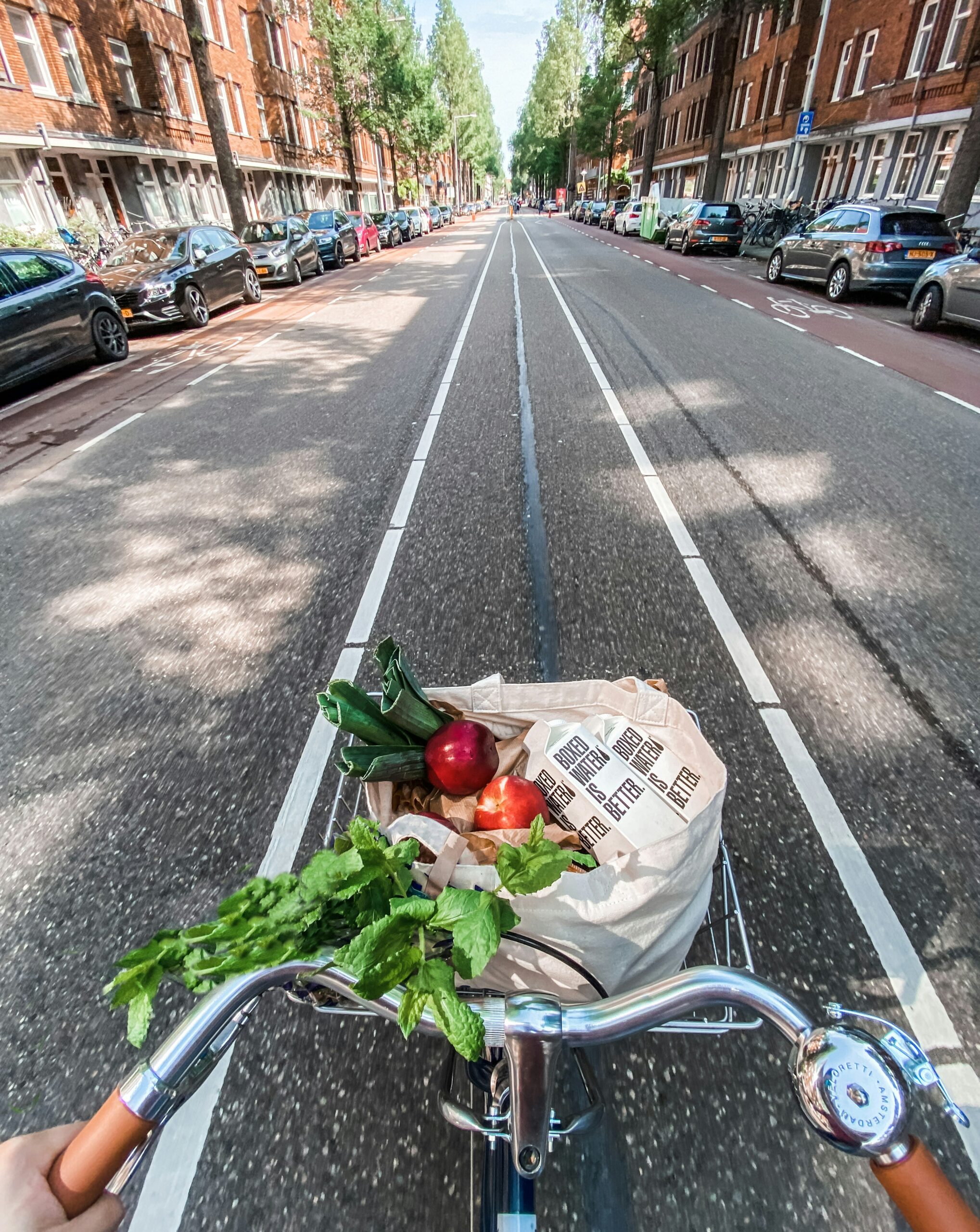Taking care of your health shouldn’t come with a price tag that leaves you stressed out. But let’s be honest, between pricey supplements, gym memberships, and $12 smoothies, it can feel like wellness is only for people with money to spare.
If you’ve ever thought, “I want to take better care of myself, but I just can’t afford it right now,” you’re not alone.
Here’s the good news: you don’t need fancy products or a big budget to feel better in your body and mind. Some of the most effective habits are completely free. Others cost just a few dollars, but pay off in a big way when it comes to your long-term health.
This post is all about cutting through the noise and focusing on what actually works. We’re keeping it simple, doable, and affordable because your health matters, and you shouldn’t have to break the bank to care for it.
Start with the Basics
When it comes to your health, the basics really do matter, and the best part? They’re completely free. You don’t need fancy equipment or a personal trainer to make a real difference in how you feel.
Start with sleep. Getting enough rest is one of the most powerful ways to support your immune system, mood, and energy. Try creating a simple nighttime routine. That might mean turning off screens an hour before bed, dimming the lights, or drinking a calming tea. It doesn’t have to be perfect. Just consistent.
Next, drink more water. It sounds simple because it is. Staying hydrated helps with everything from digestion to focus to energy levels. If plain water feels boring, try adding lemon, mint, or cucumber slices to mix it up. Keep a reusable water bottle nearby so it’s always easy to sip.
And finally, move your body in ways that feel good. You don’t need a gym membership to get active. Walk around your neighborhood, dance in your kitchen, do free YouTube workouts, or stretch for 10 minutes before bed. Movement doesn’t have to be intense. It just needs to be regular.
These habits don’t cost anything, but they give you so much in return. When you start with the basics, you’re building a strong, healthy foundation without spending a dime.

Eat Healthy Without Spending a Fortune
Eating well doesn’t mean shopping at expensive health food stores or filling your cart with trendy superfoods. In fact, some of the healthiest, most nourishing foods are also the most affordable. You just need a smart plan.
Start with a list and a budget. Planning your meals ahead of time helps you avoid impulse buys and food waste. Focus on simple, filling meals that use overlapping ingredients. A bag of rice, a can of beans, and some frozen veggies can stretch across several dishes.
Buy in bulk when it makes sense. Especially for items like oats, lentils, brown rice, or frozen fruit. Store-brand items are often just as good as name-brand, and choosing seasonal produce can save you even more.
Shop sales, stock up on freezer-friendly items, and don’t be afraid of canned goods. Canned tuna, beans, tomatoes, and soups can be nutritious and easy to work with on a tight budget.
Simple doesn’t mean boring. A pot of veggie chili, a stir-fry with frozen broccoli and eggs, or overnight oats with cinnamon and banana can be filling, healthy, and cost less than takeout.
The key is finding what works for you. Healthy eating doesn’t need to be Instagram-worthy. It just needs to be doable and delicious enough to keep going.
Affordable Self-Care That Actually Helps
Self-care isn’t about spa days or expensive skincare hauls. It’s about finding small, consistent ways to take care of your mind and body, and most of the time, that doesn’t cost a thing.
Start with simple practices you can do at home. Journaling for five minutes a day, going for a walk, stretching in the morning, or sitting quietly with a cup of tea can all help lower stress and boost your mood. These tiny pauses throughout your day add up.
Don’t underestimate the power of nature. Spending time outside, even just ten minutes on your porch or a walk in the park, can reset your nervous system and improve your mental health. And it’s completely free.
If you’re looking for mental health support but can’t afford therapy, there are still options. Many communities offer free or low-cost counseling through clinics, universities, or helplines. Apps like Insight Timer and YouTube also offer free meditations, breathing exercises, and calming content.
Check out local resources too. Public libraries, rec centers, and nonprofits often host free wellness classes, support groups, or educational events. These can be a great way to connect with others and build healthy routines, without spending a dime.
Self-care isn’t about doing more. It’s about doing what helps. And often, what helps most is just giving yourself space to breathe.
Get Smart About Preventive Care
Caring for your health isn’t just about reacting when something goes wrong. It’s also about staying ahead of the curve, and there are affordable (even free) ways to do that.
Start by checking what local clinics, health departments, or community centers offer. Many provide free or sliding-scale services for things like physical exams, vaccinations, STI testing, and blood pressure screenings. These visits can catch small issues before they become big (and expensive) problems.
If you don’t have a family doctor or regular provider, consider walk-in clinics or nurse-led health centers. Some pharmacies also offer basic health checks, often at a lower cost than traditional appointments.
Don’t forget about telehealth. It’s often cheaper than in-person visits and can be a great way to access medical advice, mental health care, or nutrition guidance, without needing transportation or childcare.
If you’re managing a chronic condition, ask about community health programs. Some offer free coaching, check-ins, or education to help you stay on track with your care plan.
Preventive care doesn’t have to be fancy or expensive. The goal is to stay in tune with your body and catch things early. It’s one of the smartest ways to protect your health and your wallet.
How to Take Care of Your Health on a Budget
Taking care of your health on a budget isn’t about doing everything. It’s about doing what matters most with the resources you already have. And the truth is, you can build a strong foundation for your well-being without spending much at all.
Start by focusing on daily habits. Drink water. Get consistent sleep. Move your body in ways that feel good. These cost nothing, but they’re the pillars of long-term health.
Next, plan your meals with intention. Use affordable staples like beans, oats, rice, and frozen produce. Keep it simple. You don’t need gourmet ingredients to nourish your body. You just need a plan that works for your time and budget.
Make room for rest and mental health, too. Find free ways to decompress. Journal, take walks, breathe deeply. If you need support, reach out to local programs or look into free digital tools.
Preventive care is another powerful tool. Look for free clinics, health screenings, and telehealth resources in your area. A little effort now can save you money and stress later.
The key to taking care of your health on a budget is consistency. Not perfection. Small, steady choices can transform how you feel over time, and you don’t need a lot of money to start.
You don’t need a personal trainer, expensive meal plan, or high-end supplements to live a healthier life. You just need small habits, a little intention, and a willingness to take care of yourself, right where you are.
Your health is built day by day. With every glass of water, every walk around the block, every simple meal you prepare, you’re making progress. And that progress is real, even if it doesn’t come with a price tag.
There will always be noise in the wellness world telling you to buy more, do more, be more. But you don’t have to subscribe to that. You can choose something quieter, more sustainable, and actually aligned with your real life.
Taking care of yourself on a budget isn’t a limitation. It’s a strength. It shows that you’re resourceful, mindful, and grounded in what truly matters.
So give yourself credit. You’re already doing something powerful by showing up for your health, even in small ways.
Want more tips for healthy living that fit your life (and your budget)?
Sign up for the Healthy American newsletter for practical wellness support, simple habits, and encouragement you can actually use.

Leave a Reply
You must be logged in to post a comment.